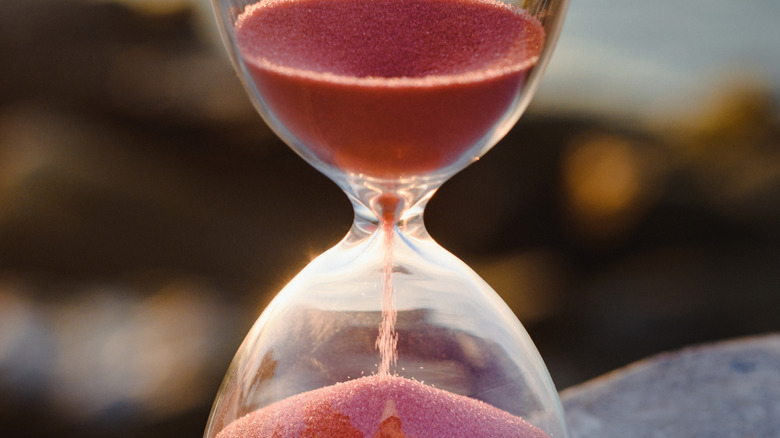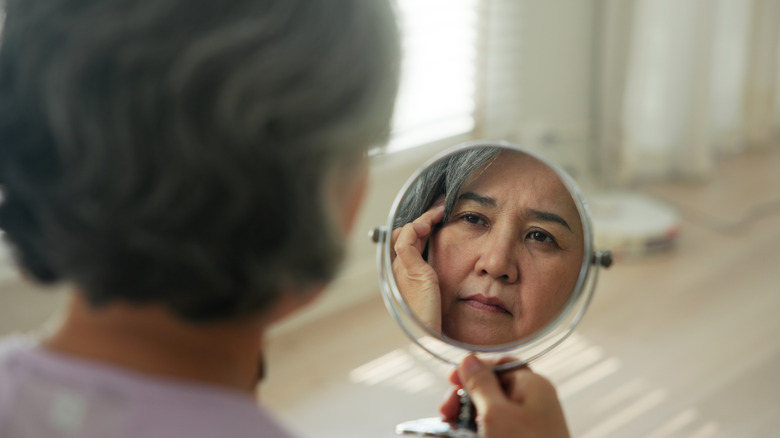Your Organs Start Aging Faster When You Reach This Age
A great songwriter once wrote, "He not busy being born is busy dying." This is, of course, a metaphorical way to talk about how life provides us with opportunities to constantly renew ourselves, and that if we're not evolving and progressing as people we're just sort of ossifying. But in a way, it's also technically true. You could (if you're so inclined) see life after birth as one straight shot towards oblivion. If you're not inclined that way, however, there's plenty of scientific evidence you could cite to make the argument that we're not technically dying until we reach certain points in our lifespan.
For one thing, the literature shows that men typically stop growing at 18 years of age and women at around 14 or 15 years of age. Using that information, you could argue we're all technically growing until our teens, after which it's a slow descent towards the grave. Or, if you want to be optimistic about it, you could argue that we don't really start to degrade as humans until the age of 50, at least according to one 2025 study published in the journal Cell. The study looked at human tissue samples across five decades and pinpointed the half-century mark as the point at which our bodies start to age more rapidly.
Happily, there's more evidence that we have until our 50s before our bodies start to really degrade. A 2023 study found that once we hit 50 years of age, we're more likely to have at least one (if not more) organ that's aging more rapidly than others, which is both reassuring and sort of concerning.
Once we hit 50 we might have an organ that's technically older than us
In that 2023 study, published in Nature, researchers from Stanford Medicine developed a way of ascertaining the biological age of individuals' organs. Biological age is different from our chronological age in that it's based on several biomarkers rather than simply the number of years we've been alive. In the study, the team took 5,676 adults and identified biological age numbers for 11 key organs, organ systems, and tissues using measurements of blood plasma protein levels from those organs. They then employed machine learning models to analyze how these organs were aging and compared the biological ages of the organs across the group and found that 18.4% of participants aged 50 or older had at least one organ aging at an accelerated rate when compared to the average. Aside from providing more evidence that our fifth decade is where things start to go wrong, this study highlights how those with a rapidly aging organ are at a higher risk for disease in that organ within 15 years.
If we could all just be as resilient as Earth's oldest living organism, we wouldn't need to worry too much about our mortality. But given the amount of anti-aging treatments there are on the market, we're all very much concerned in that regard, and that's understandable given how aging affects our ability to maintain homeostasis (our ability to regulate our internal environment). On the plus side, we do have a long lifespan when compared to other mammals. The CDC puts the average human life expectancy for females and males combined at around 78 years. Of course, if we do manage to make it to that sort of age, it doesn't mean we're just fit and healthy the entire time.
Do we really start to fall apart at age 50?
It should be noted that the Nature study does not suggest that our organs automatically start aging faster once we hit 50. It merely shows that almost 20% of those over 50 will have an organ that's aging rapidly in terms of its biological age. The study is also significant for showing that our organs do in fact age at different rates and that biologically older organs are at risk of developing disease. This means that medical professionals might be able to treat patients early and more effectively if they can identify the single organ that's aging more quickly than others.
But when you combine this study with the 2025 Cell study, which found that our bodies to seem to start aging at an accelerated rate after 50, it certainly points to our 50s as a time when things begin going awry. If we're talking chronic disease, then the data show that the majority of individuals with some sort of chronic ailment are over the age of 65, so while things seem to start going downhill in our 50s, the next decade is no picnic either. All of which is just a reminder that taking care of our health is always important but especially so as we get older. On the plus side, there's plenty of arguments to be made that we're not technically dying until relatively late in our lifespan. In that sense, "he not busy being under 50 is technically busy dying."


